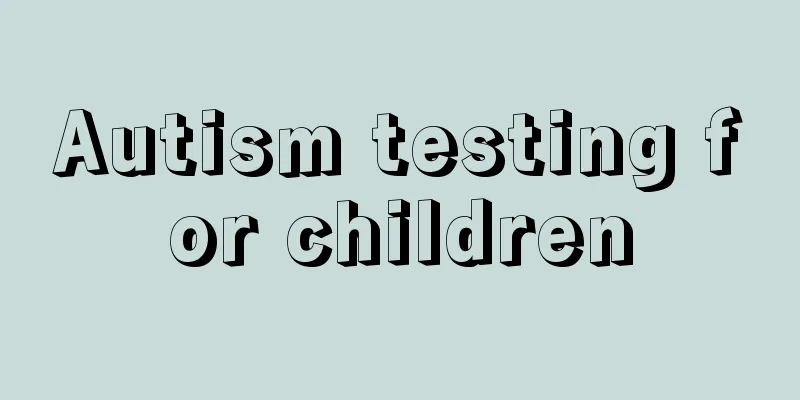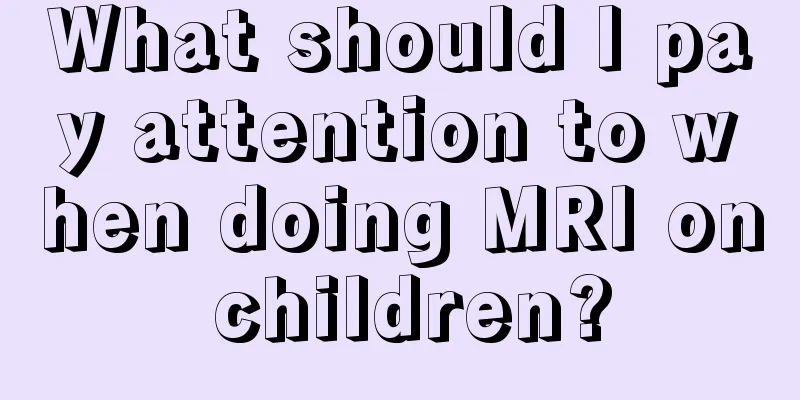Autism testing for children

|
Autism in children is a common disease, and the chance of developing the disease is quite high. Autism brings great harm to children. Autism will reduce children's learning, make them very lonely, and make them feel that life is so monotonous, gray, and colorless. Children with autism can also be tested to know whether their children have autism. So what are the methods for testing children for autism? In my country, the male to female prevalence ratio is 6 to 9. How to test and determine whether a child has autism can be determined by comprehensively considering the following aspects in which the behaviors of autistic children are different from those of normal children. 1. Like to rotate for a long time 2. Learn to do a simple thing, but forget it quickly. 3. There is often no desire to contact the environment or engage in social interaction. 4. Often cannot accept simple instructions (such as sit, come, etc.) 5. Not able to play with toys (such as endlessly turning, throwing, kneading, etc.) 6. Poor visual discrimination ability (such as poor ability to distinguish the characteristics, size, color, position, etc. of an object. 7. No social smile (i.e. no nod, greet, or smile at others) 8. Inverted or confused use of pronouns (cannot distinguish between you and me) 9. Holding something for a long time. 10. He doesn’t seem to be listening, which makes people suspect he has hearing problems. 11. Speak out of tune and without rhythm 12. Swing your body for a long time 13. You want to get something, but it is out of your reach. (That is, the distance between itself and the object is underestimated). 14. React strongly to changes in the environment and daily routine 15. When he is with other people, he does not respond when you call his name. 16. Frequently perform forward rushes, rotations, tiptoe walking, finger pinching and flicking movements, etc. 17. Not responding to other people’s facial expressions 18. Rarely use words like "yes" or "I" when speaking 19. Having special abilities in certain areas that seem inconsistent with low intelligence 20. Unable to follow simple instructions containing prepositions (such as putting the ball on or in the box) 21. Sometimes he does not startle in response to loud noises (which may make people think he is deaf) 22. Frequent hand clapping 23. Losing temper or losing temper frequently 24. Actively avoid eye contact with others 25. Refusing to be touched or hugged by others 26. Sometimes no reaction to very painful stimuli such as falls, cuts, or injections 27. The body is very stiff and difficult to hug 28. When you hold him, you can feel his muscles relax (even if he is not clinging to the person holding him) What are the common factors associated with autism? 1. Viral infections during pregnancy: Viral infection during pregnancy is one of the common causes of autism. Women may be infected with measles or influenza viruses during pregnancy, which may damage the brain development of the fetus and lead to autism. 2. Genetic factors: Many children with autism have genetic factors. Mental retardation, delayed language development and autism-like disorders can be found in their families. In addition, approximately 10% of boys with autism have chromosomal fragility. 3. Metabolic diseases: Metabolic diseases are one of the common causes of autism. Congenital metabolic disorders such as phenylketonuria cause dysfunction and disorders of brain cells, which affect the function of brain nerve information transmission and cause autism. 4. Brain injury: Factors such as distressed miscarriage during pregnancy that cause brain underdevelopment, premature birth, difficult labor, neonatal brain injury during delivery, and brain damage in infants due to infections such as encephalitis and meningitis may all increase the chance of autism. You can test your child at home to see if he or she has autism. If he or she does, treat him or her immediately. If the test is not possible, you can take your child to the hospital for a check-up to see if he or she has autism. When treating your child for autism, you should give your child more psychological guidance, let your child communicate and interact with others more, and let your child feel less lonely. This will improve your child's autism. |
<<: Reasons for cold sweats in children
>>: What to do if your newborn baby has bleeding belly button
Recommend
What should I do if my baby has a cold and diarrhea?
Babies are definitely the ones with the weakest r...
Why does a one-year-old girl have breast development?
We all know that women's breasts begin to dev...
What to do if a child has acute gastroenteritis and vomits
Children's stomachs are relatively weak. Once...
What should I do if my child’s teeth are loose?
When children reach a certain age and enter the t...
What should we pay attention to during circumcision surgery for children?
If a boy is born with a long foreskin, certain me...
What should I do if my child is hyperactive?
Some people think that children are naturally mor...
What causes stomachache in a 10-year-old child?
Although stomachache is not a serious disease, it...
How to quickly stop children's cough at night
Autumn is a season of high clear skies, dry skies...
What are the early symptoms of cerebral palsy in children?
Cerebral palsy is a relatively serious disease. T...
The reason why children's teeth turn black
Teeth are the most critical body element for a pe...
Is it good for children to eat dragon fruit?
Dragon fruit is a tropical fruit. It is not only ...
How should students apply eye shadow?
Eye makeup is essential for girls who love beauty...
Nursing methods for children with acute rash
If a child has an emergency, treatment and nursin...
Can children eat red dates when they have a cough?
Children can eat red dates when they have a cough...
How to treat acne on boys' faces
Acne on boys' faces has a great impact on our...









